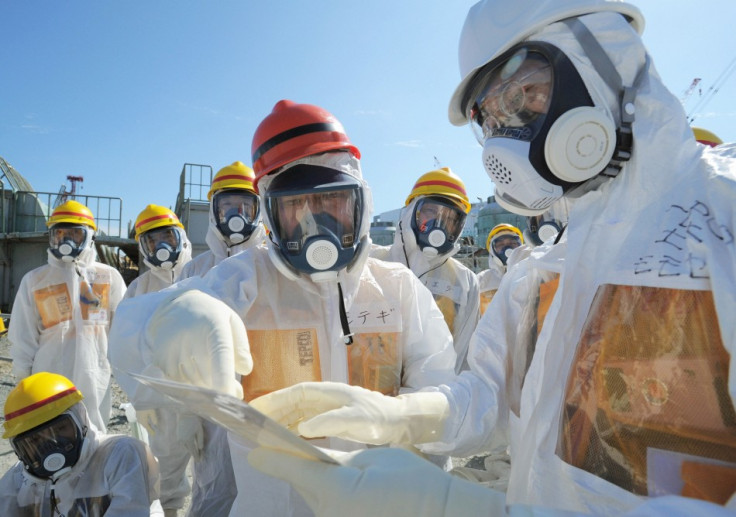Fukushima Fall-out: Minister Compares Tepco Response To 'Whack-A-Mole'

Japan's industry minister Toshimitsu Motegi said the government would increase its involvement in clean-up efforts at the polluted Fukushima nuclear plant.
He also compared plant operator Tokyo Electric Power's (Tepco) response to the contaminated water leak, to a fairground game.
In an AFP report, Motegi said: "With regard to Tepco's handling of contaminated water, it has been just like whack-a-mole".
'Whack-a-mole' is a chaotic game where players wallop creatures that pop up from random holes.
The comparison refers to Tepco's handling of the fallout from the March 2011 earthquake and tsunami which crippled the Fukushima Daiichi nuclear power plant. Some 300 tonnes of highly radioactive water leaked from one of several tanks storing water, washing over melted reactors at the disaster site. The tanks were reportedly built in a hurry.
Tepco only recently acknowledged that radioactive groundwater had leaked into the ocean, suggesting that clean-up efforts, which began in the wake of the meltdown in March 2011, are yet to bear fruit.
"From now on, the government will play a greater role," Motegi said following a visit to the Fukushima site.
Chief Cabinet Secretary Yoshihide Suga called the situation at the crippled plant "deplorable". He also hinted that the government could pledge funds for the clean-up. Japan has a 350bn yen (£2.64bn, €2.27bn , $3.54bn) reserve fund that covers natural disasters and other emergencies.
Meanwhile, Tepco said it would bring on board foreign decommissioning experts to help tackle the problem of radioactive water leaking from the Fukushima site.
Tepco's stock price finished 6.89% lower at 473 yen (£3.1 , €3.6) on Monday in Tokyo.
The Japanese government's intervention comes at a time when critics are questioning Tepco's handling of the nuclear crisis and people are demanding a greater government role in the clean-up.
Last week, the Nuclear Regulation Authority, Japan's nuclear watchdog, found that storage at the Fukushima Daiichi site was "sloppy".
Earlier, the NRA said it planned to raise the severity of the 300-tonne toxic water leak to a level three "serious incident", from a level one "anomaly" on the seven-point International Nuclear and Radiological Event Scale (INES).
The leak is so contaminated that a person standing 50 cm (1.6 feet) away would receive a radiation dose five times the average annual global limit for nuclear workers within just one hour, reported Reuters.
© Copyright IBTimes 2025. All rights reserved.






















